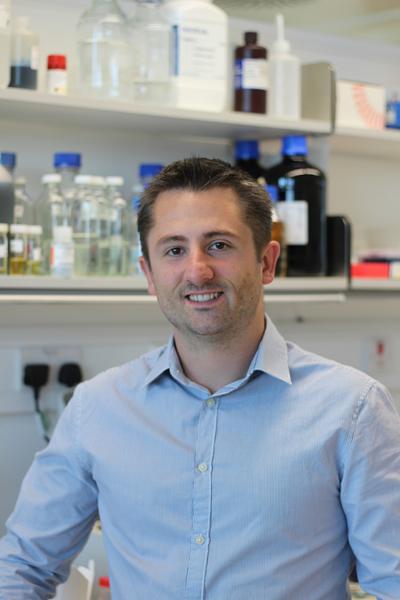The group (2020/2021):
Matthias Baud (PI)
Maeva Pichon (PDRA): Bioorthogonal chemistry methodologies and chemical biology of cysteine redox signaling
Joseph Stephenson-Clarke (4th year PhD): Medicinal chemistry and chemical biology of the tumor suppressor p53
Michael Mccoy (4th year PhD): Medicinal chemistry and chemical biology of Wnt signaling
Robert Troup (3rd year PhD, joint with Prof. B. Linclau): New fluorination methods in medicinal chemistry
Steve John (3rd year PhD, joint with Dr/Prof Ewing/Skipp/Packham): PPI networks in Wnt signaling and disease
Laura Hayward (2nd year PhD): Bioorthogonal chemistry methodologies and chemical biology of cysteine redox signalling
Ruxandra Moraru (2nd year PhD): New strategies for targeted covalent inhibition (TCI) in medicinal chemistry
Niama Ezzaidi (1st year PhD): Medicinal chemistry of multiple sulfatase deficiency (MSD)
Johanna Fish (1st year PhD rotation, Socobio DTP programme): Medicinal chemistry of PROteolysis TArgetting Chimeras (PROTACs)
Ryan McIntyre (Y4 project): New strategies for targeted covalent inhibition (TCI) in medicinal chemistry
Danielle Holmes (Y3 project): New fluorination methods in medicinal chemistry
Cellular processes are mediated by numerous complex and intricate biochemical pathways, involving thousands of biomolecules interacting with each other both in a temporal and spatial manner. As such, probing the spatiotemporal roles and interactome of a biomolecule in its native environment remains a formidable challenge. Despite the continuous progress in omics and structural biology techniques, our understanding of how proteins interact with each other and achieve their downstream physiological effects remains in its infancy. In particular, protein-protein interactions (PPIs) have received a great deal of attention lately, and opened new perspectives for therapeutic interventions through their modulation. Studying PPIs is a difficult task, notably due to the size of the macromolecular assembly (e.g. several MDa), the highly dynamic nature of protein-protein association, the structural adaptability of their interfaces to allow such association, and the dependence of such association on post-translational modifications (PTMs), which are themselves dynamic and regulated by many other proteins. Despite such obstacles, small synthetic molecules can be rationally devised to perturb protein’s interactome by potently binding to their surface. They therefore offer a powerful tool towards functional elucidation and for further therapeutic applications. Small molecules can bind and interact with a protein in many ways. Historically, the vast majority of small molecule chemical probes and drugs were developed with the aim of perturbing the association equilibria between a protein and its partners (e.g. a co-factor or another protein). However, novel and powerful chemical approaches aiming at modulating protein functions with small molecules have emerged in recent years, opening new perspectives in biology and drug discovery.
Our research is multidisciplinary and strongly relies on synthetic organic chemistry and biophysical techniques (e.g. DSF/DSC, ITC, NMR spectroscopy), combined with chemical/structural biology and computational methods (e.g. docking, QM). Our primary focus is on the development of chemistry driven approaches to modulate proteins’ physiological activity in a wide sense, with the ultimate goal to deliver new tools to study proteins’ function in living systems. Whenever possible, we exploit the knowledge gained from these studies to attempt tackling difficult problems in human health, notably in cancer, in collaboration with teams of biologists.
Opportunities:
We are looking to recruit talented and dedicated scientists. Positions in our group will be advertised on the University website when funding is available. However, if you intend to apply for your own funding, please get in touch by email: m.baud@soton.ac.uk
